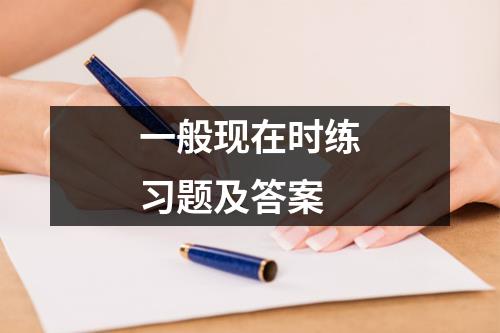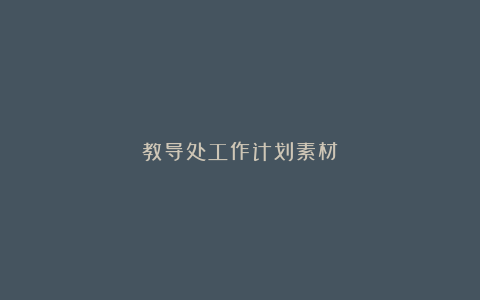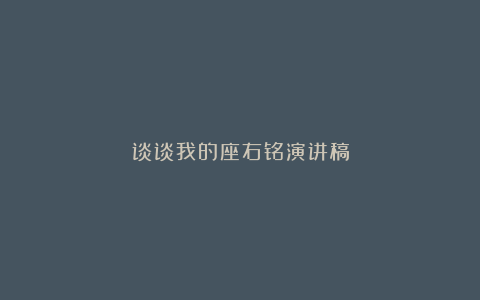一般现在时练习题及答案
- 文档
- 2024-08-17
- 168热度
- 0评论
以下是小编为大家收集的一般现在时练习题及答案,本文共9篇,欢迎参阅,希望可以帮助到有需要的朋友。

一般现在时练习题
一、写出下列动词的第三人称单数
drink ________ go _______ stay ________ make ________ look _________ have_______ pass_______ carry _______ come________ watch______ plant_______ fly ________ study_______ brush________ do_________ teach_______
二、用括号内动词的适当形式填空。
1. He often ___________(have) dinner at home.
2. Daniel and Tommy __________(be) in Class One.
3. We ___________(not watch) TV on Monday.
4. Nick ___________(not go) to the zoo on Sunday.
5. _______ they ________(like) the World Cup?
6. What ________they often ________(do) on Saturdays?
7. _______ your parents ________(read) newspapers every day?
8. The girl _________(teach) us English on Sundays.
9. She and I ___________(take) a walk together every evening.
10. There __________(be) some water in the bottle.
11. Mike _________(like) cooking.
12. They _________(have) the same hobby.
13. My aunt _________(look) after her baby carefully.
14. You always _________(do) your homework well.
15. I _________(be) ill. I’m staying in bed.
16. She ________(go) to school from Monday to Friday.
17. Liu Tao ________(do) not like PE.
18. The child often _________(watch) TV in the evening.
19. Su Hai and Su Yang _________(have) eight lessons this term.
20. -What day ________(be) it today?
- It’s Saturday.
三、完成句子
1. 他每天六点钟起床。
He ________ at six every morning.
2. 小明经常去远足。
Xiao Ming often ________hiking.
3. 她总是在星期天看望爷爷奶奶。
She always ________ her grandparents on Sundays.
4. Sandy周末上学吗?
________ Sandy ________ school on weekends?
5. 他什么时候去上班?
When ________ he go to _________?
6. 李云喜欢秋天,不喜欢冬天。
Li Yun ________ autumn, but he ________ like winter.
7. 今天的天气怎么样?
What’s the ________ like today ?
8. 她有电脑吗?
________she ________ a computer?
四、按照要求改写句子
1. Daniel watches TV every evening.(改为否定句)
________________________________________________________
2. I do my homework every day.(改为一般疑问句,作否定回答)
________________________________________________________
3. She likes milk.(改为一般疑问句,作肯定回答)
________________________________________________________
4. Amy likes playing computer games.(改为一般疑问句,作否定回答) ________________________________________________________
5. We go to school every morning.(改为否定句)
________________________________________________________
6. He speaks English very well.(改为否定句)
________________________________________________________
7.She is always a good student.(改为一般疑问句,作否定回答)
________________________________________________________
8. Simon and Daniel like going skating.(改为否定句)
________________________________________________________
I.用所给动词的适当形式填空。
1. We often___________(play) in the playgound.
2. He _________(get) up at six o'clock.
3. __________you _________(brush) your teeth every morning.
4. What (do) he usually (do) after school?
5. Danny __________ (study) English, Chinese, Maths, Science and Art an school.
6. Mike sometimes __________(go) to the park with his sister.
7. At eight at night, she __________(watch) TV with his parents.
一般现在时态基础的练习题
一、一般现在时态练习
1.This is my pencil ? (变一般疑问句) your pencil ?
2. These red socks are Kate's . (变一般疑问句) socks Kate's ?
3. I want to buy a big green bag . (变特殊疑问句) you want to buy ?
4. Mary does not have any books . (变肯定句)Mary books .
5. The clothing shop is on sale . (变为否定句)
6. She likes the black bag very much . (变为否定句)
7. I buy the pants for only 50 Yuan. (用she改写句子) the pants for only 50 Yuan.
8. It's an English dictionary . (对画线部分提问)
9. Lily and Lucy are fifteen years old now . (对画线部分提问) Lily and Lucy ?
10. Her dog is 2 years and 5 months old . (变为否定句) Her dog 2 years and 5 months old .
二.用be动词的`适当形式填空。
1. I -- a student . You -- a teacher . 2. She - my friend.
3.-- you Li Fen ? No, -- not . 4. -- Mr. green very busy?Yes , he -- .
5. He must -- at home . 6. --Comedy -- very interesting .
7. -- thrillers very scary ? 8. You and I -- good friends .
9. His friends -- very funny 10. The twins -- very happy because they want to go to a movie .
11. The girl in red clothes-- my sister .
三.用所给动词的适当形式填空。
1. People usually-- (eat) dinner in the evening .
2. His sister usually-- (go) to school at 7:00 am .
3. Lin Tao -- (like) his new sweater .
4. Let me -- (have) a look .
5. -- he -- (like) English ?
6. I want -- (go) to a movie .
7. He -- -- (not know)the teacher's name .
8. Can I -- (ask) the policeman ?
9. She likes -- (play) chess .
10. It's time-- (play) games .
(2) was / were to + 动词原形:主要表示过去按计划或安排要做的事情。如:
He asked where he was to put it. 他问他该把它放在哪里。
She said she was to get married next month. 她说她计划在下个月结婚。
(3) was / were about to + 动词原形:表示在过去看来即将要发生的动作,由于本身已含有“即将”的意味,所以不再表示具体的过去时间状语连用。如:
I was about to go to bed when the phone rang. 电话铃响时我正好要上床睡。
I couldn’t go to Tom’s party as I was about to go into hospital. 我就要住院,所以不能参加汤姆办的晚会了。
(4) was / were +现在分词:表示在过去看来即将发生的动作。如:
Jack said he was leaving tomorrow. 杰克说他打算明天动身。
She didn’t say whether she was coming to lunch. 她没有说她是否来吃午饭。
注意,并不是所有动词都具有这样的用法,通常可用于该句型中动词是 come, go, leave, arrive, begin, start, stop, close, open, die, join, borrow, buy 等瞬间动词。
过去进行时的用法:
(1) 表示委婉语气:动词hope, wonder等的过去进行时常用来表示提出要求,虽然表示现在的内容,但语气比一般现在时或过去进行时要委婉。如:
I was hoping you would give me some advice. 我希望你给我出点主意。
Good morning. I was wondering if you had two single rooms. 早上好,我不知道你们是否有两个单人房间。
一般过去时也有类似用法,相比之处,一般过去时通常表示主语的行为是经过认真考虑的,而过去进行时则多表示一种较随便或没有进行仔细考虑的行为。
(2) 表示重复:过去进行时有时可以与always, constantly, continually, forever,等表示动作屡次发生的副词连用,强调动作的不断重复的。如:
They were always quarrelling. 他们老是吵架。
She was always thinking of others. 她老是想到别人。
She was forever complaining. 她老是抱怨。
注:现在进行时也有类似用法,但过去进行时是表示过去不断重复的动作,而现在进行时是表示现在不断重复的动作。
如何理解时态呼应中的“主将从现”:
1. “主将从现”见于时间状语从句
As soon as I get through with my work I’ll join you. 我工作一做完就来找你们。
As soon as my divorce goes through, we’ll get married. 一俟我的离婚申请获准,我们就结婚。
Before they drive any of the buses, they will have to pass a special test. 然而在驾驶公共汽车前,他们必须通过专门测验。
My mother will be very angry with me when she finds out where I’ve been. 我母亲要是知道我到过那地方一定会大怒。
We’ll pay you half up front and the other half when you’ve finished the job. 我们先付给你一半钱,剩下的一半等你干完了再付。
2. “主将从现”见于条件状语从句
If (it is) necessary I will come at 6. 如有必要,我6点钟来。
If today is Wednesday, the day after tomorrow will be Friday. 今天要是星期三,后天就是星期五。
If you train hard, you’ll make a good footballer. 你要刻苦训练就能成为出色的足球运动员。
If you add too much liquid the mixture will not be thick enough. 加入的液体太多,混合液的浓度就不够。
If past experience is anything to go by, the plane will be late. 过去的经验要是还靠得住的话,这飞机会晚点的。
3. “主将从现”见于让步状语从句
We’ll go even if it rains. 即使下雨我们也去。
He’ll come even if he’s i11. 他即使生病也会来。
He’ll definitely win, even if he falls over. 即使他跌倒了,他也必胜。
Even if he had the money, he wouldn’t buy it. 他即使有钱也不会买它。
I’ll try to come, though I doubt if I’ll be there on time. 我尽量来,但不敢说能准时到.
He’ll probably say no, though it’s worth trying. 他很可能不同意,但不妨去试探一下。
I.用所给动词的适当形式填空。
1. We often___________(play) in the playgound.
2. He _________(get) up at six oclock.
3. __________you _________(brush) your teeth every morning.
4. What (do) he usually (do) after school?
5. Danny __________ (study) English, Chinese, Maths, Science and Art an school.
6. Mike sometimes __________(go) to the park with his sister.
7. At eight at night, she __________(watch) TV with his parents.
3. The fact that so many people still smoke in public places ______ that we may need nationwide campaign to raise awareness of the risks of smoking.
A. suggest B. suggests
C. suggested D. suggesting
【分析】B。表示目前存在的客观事实,故用一般现在时。句意为:许多人仍在公共场所抽烟,这表明我们需要进行全国性的运动来提高人们对吸烟危害性的认识。
过去将来时的用法:
(1) was / were going to + 动词原形:该结构有两个主要用法,一是表示过去的打算,二是表示在过去看来有迹象表明将要发生某事。如:
I thought it was going to rain. 我想要下雨了。
I was going to leave when he came in. 他进来时我正要离开。
1. The house belongs to my aunt but she ______ here any more.
A. hasn’t lived B. didn’t live
C. hadn’t lived D. doesn’t live
【分析】D。指现在的一般情况,故用一般现在时。
2. We live day by day, but in the great things, the time of days and weeks ______ so small that a day is unimportant.
A. is B. are
C. has been D. have been
【分析】A。句子主语为the time,故用谓语要用单数; 再根据句子前后的时态live和is,可知此处宜用一般现在时,不用现在完成时,故选A。
捞月亮练习题及答案
一、给下面涂色字选择正确读音,用“√”标出。
咱们(zán zhán) 爬行(pá bā)
最好(zuì zhuì) 碰见(pāng pèng)
二、读拼音,写词语。
shuǐ ǐng
1、奶奶说,他们从前都是从 里打水的'。
pá xíng
2、很多小动物都是 走路的。
三、句子模仿秀。
大猴子叫起来,小猴子也跟着叫起来。
_________,____也_____________。
四、根据课文内容填一填。
猴子们( )了井旁边的大树。老猴子( )在树上,( )大猴子的脚。大猴子也( )着,( )另一猴子的脚。猴子们就这样( )一直( )井里头,小猴子( )最下面。
参考答案:
一、zán √ pá √ zuì √ pèng√
二、1.水井 2.爬行
三、我说什么 鹦鹉 说什么。
四、爬上 倒挂 拉住 倒挂 拉住 一只接一只 挂到 挂在
《观潮》节选练习题及答案
阅读下文,回答问题。
“浙江之潮,天下之伟观也。自既望以至十八日为最盛。方其远出海门,仅如银线;既而渐近,则玉城雪岭,际天而来,大声如雷霆,震撼激射,吞天沃日,势极雄豪。杨诚斋诗云:“海涌银为郭,________________”者是也。
1、解释下列词语。
①既望( )
②际天( )
③既而( )
④沃日( )
2、翻译句子。
①浙江之潮,天下之伟观也。
________________________________________
②玉城雪岭,际天而来。
________________________________________
3、文中横线上应填写的句子是:________________________________________
4、文中总写大潮的句子是:________________________________________
5、文中写潮的描写顺序是:________________________________________
6、文段所写的主要内容是:________________________________________
参考答案:
1、①农历十六日(十五日叫望)
②连接着天
③一会儿
④冲荡太阳。形容波浪大。沃,用水淋洗。
2、①江汹涌的.海潮是天下间最壮观的。
②玉城雪岭一般的潮水连天涌来。
3、江横玉系腰
4、浙江之潮,天下之伟观也。
5、由远及近。
6、状写海潮气势。
★
★
★
★
★
★
★
★
★
★



